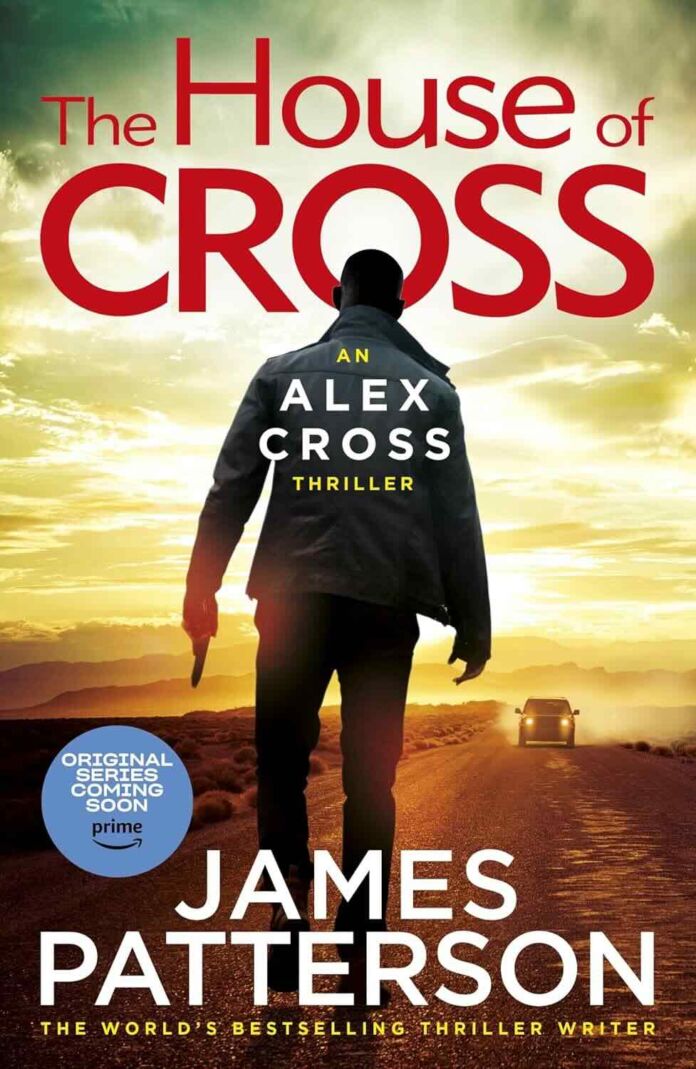In his thirty-third Alex Cross novel, James Patterson delivers a high-stakes thriller that weaves together political machinations, vigilante justice, and personal peril. “The House of Cross” stands as a testament to Patterson’s ability to craft complex narratives that operate on multiple levels, keeping readers engaged through both intimate character moments and broader societal implications.
Plot Synopsis
The story unfolds against the backdrop of a presidential transition in Washington, D.C., where potential Supreme Court nominees are being systematically eliminated. Detective Alex Cross, working as an FBI consultant, is drawn into investigating these high-profile murders. The investigation takes an intensely personal turn when his wife Bree and best friend John Sampson disappear while following leads in Idaho, forcing Cross to confront a shadowy vigilante organization known as Maestro and its mysterious leader, M.
Critical Analysis
Strengths
Patterson’s mastery of pacing shines throughout the novel. The parallel storylines – the Supreme Court murders, the search for Bree and Sampson, and the revelation of Maestro’s true motives – are expertly balanced, creating a constant sense of urgency without becoming overwhelming.
The character development, particularly in the relationship between John Sampson and Rebecca Cantrell, adds emotional depth to the narrative. Their love story, culminating in an engagement, provides a touching counterpoint to the darkness of the main plot.
The technical details about surveillance technology and the power of data mining feel thoroughly researched and add a contemporary edge to the traditional thriller format. Patterson’s depiction of Paladin, the data-mining company at the center of the conspiracy, reflects current concerns about privacy and technological control.
Areas for Improvement
While the multiple plotlines are generally well-handled, some readers might find the connection between Ryan Malcomb’s personal history and his motivations as M slightly stretched. The revelation about his twin brother Sean and their childhood trauma, while interesting, could have been more fully developed.
The resolution of certain plot threads, particularly regarding Officer Fagan’s survival, feels somewhat convenient. A more detailed explanation of how she managed to survive in such extreme conditions would have strengthened the narrative’s credibility.
Character Development
Alex Cross
Patterson continues to evolve his protagonist in meaningful ways. Cross’s role as an FBI consultant allows him to showcase both his investigative skills and his psychological insights. His determination to save his wife and best friend while maintaining his professional obligations creates compelling internal conflicts.
Supporting Cast
The expanded role of Bree Stone and John Sampson adds depth to the series’ regular cast. Bree’s investigative instincts and Sampson’s personal growth through his relationship with Rebecca demonstrate Patterson’s commitment to developing his supporting characters beyond their relationships with Cross.
Writing Style
Patterson’s trademark short chapters and crisp dialogue keep the story moving at a brisk pace. The multiple viewpoint structure, while complex, effectively builds tension by allowing readers to see events unfolding from different perspectives. The author’s description of the winter wilderness in Idaho and British Columbia is particularly vivid, creating a palpable sense of isolation and danger.
Themes and Subtext
The novel explores several compelling themes:
- The corruption of power and justice
- The fine line between vigilantism and legitimate law enforcement
- The impact of technology on privacy and security
- The enduring strength of family bonds and friendship
Series Context
While “The House of Cross” builds on established relationships and previous events in the series, Patterson provides enough context for new readers to follow the story. However, longtime fans will appreciate the deeper resonance of certain character interactions and plot developments.
Final Verdict
“The House of Cross” successfully combines the personal and political elements that have made the Alex Cross series enduring. Despite some minor shortcomings in plot resolution, the novel delivers a satisfying blend of action, emotion, and social commentary.
Recommendations
This book will appeal to:
- Fans of political thrillers
- Readers interested in technological surveillance and privacy issues
- Those who enjoy complex family dynamics in their mysteries
- Followers of the Alex Cross series
Similar authors and series to explore:
- Michael Connelly’s Harry Bosch series
- David Baldacci’s Memory Man series
- John Sandford’s Lucas Davenport novels
Impact and Relevance
Patterson’s exploration of the manipulation of judicial power and the role of technology in modern surveillance feels particularly timely. The novel raises important questions about the balance between security and privacy, justice and revenge, while never losing sight of the human elements that drive the story.
Conclusion
“The House of Cross” represents a strong addition to the Alex Cross series, demonstrating James Patterson’s continued ability to craft engaging thrillers that combine personal stakes with broader societal issues. While not without its flaws, the novel succeeds in delivering both emotional satisfaction and intellectual engagement, making it a worthwhile read for both longtime fans and newcomers to the series.
About the Series: The Alex Cross novels have consistently topped bestseller lists since “Along Came a Spider” was published in 1993. “The House of Cross” marks the thirty-third installment in this enduring series, which has sold over 100 million copies worldwide.





